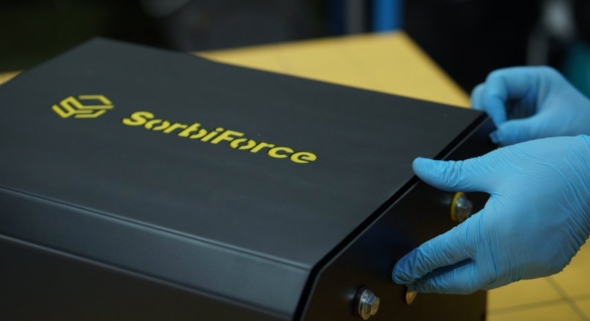
“Our current battery designs have significant environmental impacts,” said Kevin Drolet, SorbiForce’s CMO. He noted that CEO and co-founder Serhii Kaminskyi, a material scientist, has been focused on resolving these issues for years.
In the late 2010s, Kaminskyi assembled a team to tackle the challenge. After relocating due to regional instability, the company joined the University of Arizona Center for Innovation through a U.S. Department of State program. SorbiForce now operates both in Ukraine and the United States.
“We see waste as a resource with potential for enterprise,” Drolet said. The company’s sorption batteries use physical processes to move electrons through an ultraporous carbon layer, with carbon-based cathodes and anodes, ensuring the battery is nonflammable.
“The ultraporous carbon improves with age,” Drolet explained. “With periodic water replenishment, the battery could last up to 30 years.”
At the end of its life cycle, 95% of the battery decomposes into organic materials, with the remaining 5% being reusable. Unlike lithium-ion batteries, which can contribute to toxic waste, SorbiForce’s design avoids hazardous outcomes. “You could cut our battery in half, and it would still function safely without releasing toxins,” Drolet said, highlighting its metal-free, closed-loop system.
SorbiForce plans to launch pilot projects ranging from 60 kWh to 150 kWh in the second half of 2025. The company is seeking $5 million in seed funding to support this phase. Drolet emphasized the affordability of their approach: “Our production costs are lower because salt and other materials are abundant in the U.S.”
The batteries offer over 6,000 cycles and modular stacking, making them adaptable for scaling. Drolet anticipates a smooth transition from pilots to full production, driven by market demand. “There’s a strong need for safe, nonflammable energy storage made locally,” he said. “We can meet that need while supporting a sustainable energy economy.”
SorbiForce expects to deliver its first batteries from initial sales later in 2025, marking a step toward broader adoption of its technology.